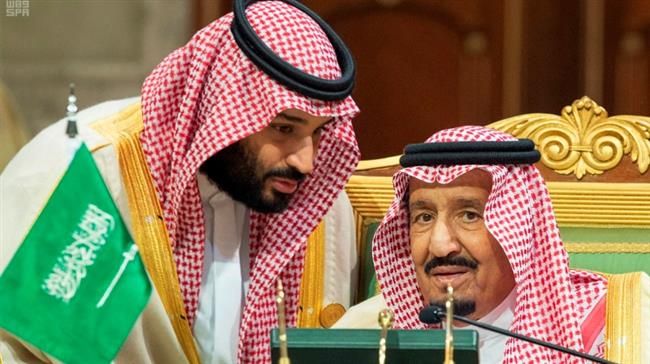Saudi to normalize Israel ties? Chances are remote: Report
The regime in Riyadh is not likely to normalize relations with Tel Aviv or support a plan proposed by Washington on the Israeli-Palestinian conflict unless Israel makes significant concessions to the Palestinians, a report says.
Israel's Channel 13 on Friday cited a classified document of the Israeli Foreign Ministry in that regard, the Times of Israel reported.
An unnamed foreign ministry official familiar with the document was quoted in the report as saying that the paper contradicts Israeli Prime Minister Benjamin Netanyahu’s vision of a wider Arab-Israeli detente that will eventually lead to a peace agreement with the Palestinians.
#Israel's Foreign Ministry's report: Saudi Arabia will not normalize its relations with #Israel without any progress in the Palestinian issue https://t.co/Nu97CDAudQ
— Guy Elster (@guyelster) February 8, 2019
The paper, which was distributed to Netanyahu’s office, selected ambassadors and ministry diplomats, argues that the chances of Netanyahu’s formula on brokering an Israeli-Palestinian peace deal by promoting ties with the Arab world were remote.
“It appeared there was a window of opportunity to bring about a breakthrough with Saudi Arabia, but even if there was, it is likely already closed at this point,” the unnamed official was quoted as saying.
According to the official, the document, written by the ministry’s Center for Political Research, also said that management of the Palestinian portfolio was shifted from Saudi Crown Prince Mohammed bin Salman to King Salman.
The TV report did not say what the nature of a significant concession by Israel to the Palestinians would be but it cited an unnamed US official as saying that King Salman told Secretary of State Mike Pompeo in January that he would not support Washington’s coming peace plan if it did not provide for a Palestinian capital in East Jerusalem al-Quds.
Read more:
The so-called deal of the century, a backchannel plan to allegedly reach a peace settlement between Israel and the Palestinians, was proposed by the administration of US President Donald Trump in 2017. Although the plan has not been released, leaks signal it will consist of the same tried-and-failed ideas.
In recent years, Israel has been working to improve ties with Persian Gulf Arab states such as Saudi Arabia, the United Arab Emirates and Bahrain.
While little is known about Trump's plan, leaks have suggested that it regards Jerusalem al-Quds entirely as an Israeli territory, whereas Palestinians view the eastern sector of the occupied city as the capital of their future state.
The Palestinians believe the US-drafted plan calls for keeping borders and security under Israeli control, while it keeps the final borders of Israeli settlements to be discussed in later negotiations.
Trump's son-in-law and senior adviser, Jared Kushner, and Jason Greenblatt, the US president's special adviser for international negotiations, are reportedly the main architects of the plan.
Israel occupied East Jerusalem al-Quds during the Six-Day War in 1967 and later annexed the city in a move not recognized by the international community.
Read more:
Palestinian President Mahmoud Abbas in November last year rejected the plan and decried what he called efforts to separate the West Bank from the Gaza Strip.
In Gaza, the Hamas resistance movement has said it would never allow the deal to be implemented.
‘All wars have rules. All of those rules have been broken’ by Israel
VIDEO | Report flags India’s violation of rights of Rohingya detainees
Turkey's foreign minister meets Syria's de facto leader in Damascus
'Next to impossible' to rescue patients from Gaza's Kamal Adwan Hospital: Director
VIDEO | Vietnam current prosperity
Report blames gasoil exports for shortage at Iranian power plants
VIDEO | Hind Rajab Foundation names Israeli war criminals vacationing after Gaza genocide
VIDEO | Australians rally for Gaza ahead of Christmas festivities












 This makes it easy to access the Press TV website
This makes it easy to access the Press TV website